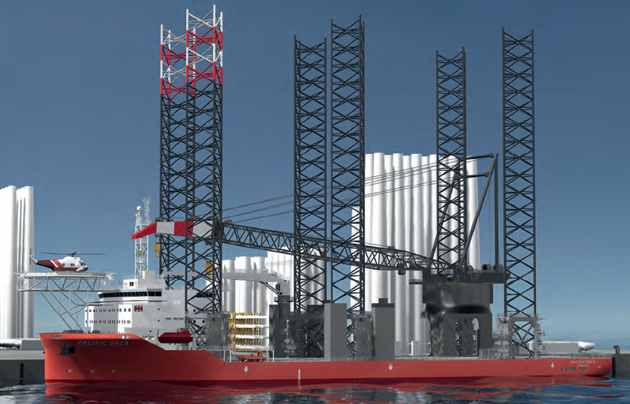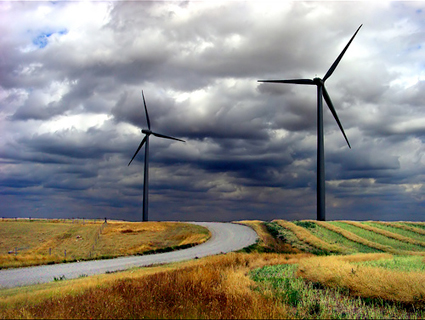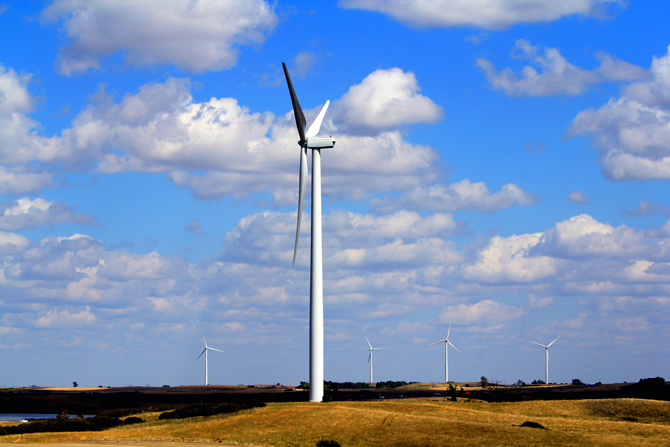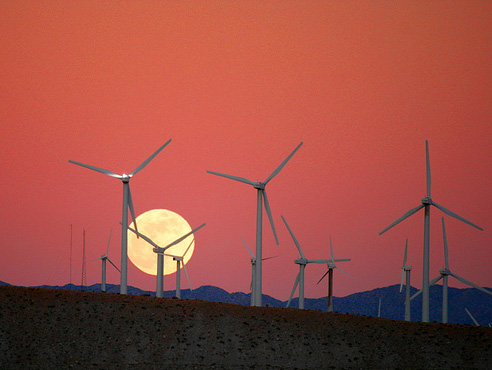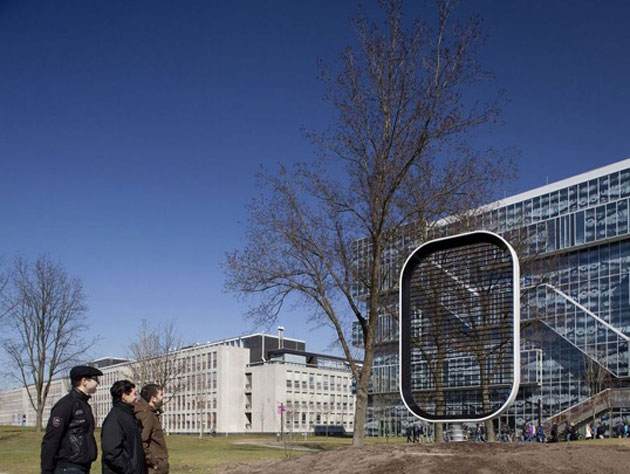
<a href="http://www.mecanoo.nl/Default.aspx?tabid=116&DetailId=847&pcode=A498">Mecanoo</a>
This story first appeared on the Atlantic Cities website and is reproduced here as part of the Climate Desk collaboration.
It may look like a giant airplane window strung with Venetian blinds, but this structure, designed by Dutch architecture firm Mecanoo and installed at the Delft University of Technology this month, is a model of a machine that would convert wind to energy without any moving parts.
Any mechanical moving parts, at least: the technology, developed by the Electrical Engineering, Mathematics and Computer Science faculty at Delft, uses the movement of electrically charged water droplets to generate power. How does this work? A handy video explains:
The prototype of the EWICON (Electrostatic Wind Energy Converter), as envisioned by Mecanoo, has the potential to change the use of wind technology. The EWICON absorbs little wear and tear, requires hardly any maintenance, but most importantly, it makes no noise and casts no moving shadows, two of the principal complaints that hinder windmill installation in the United States.
This, Mecanoo believes, makes it the ideal feature for urban environments — they’ve already incorporated them into their design for a project in Rotterdam.
